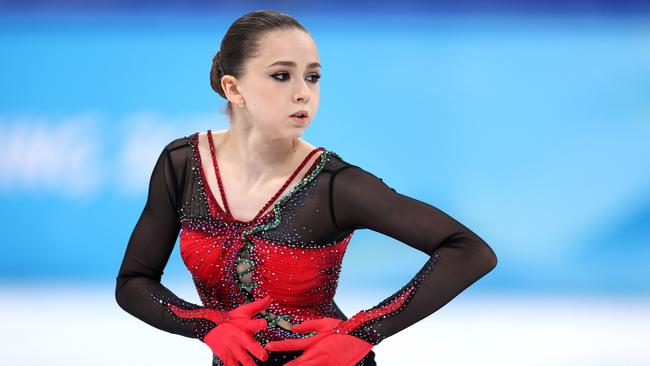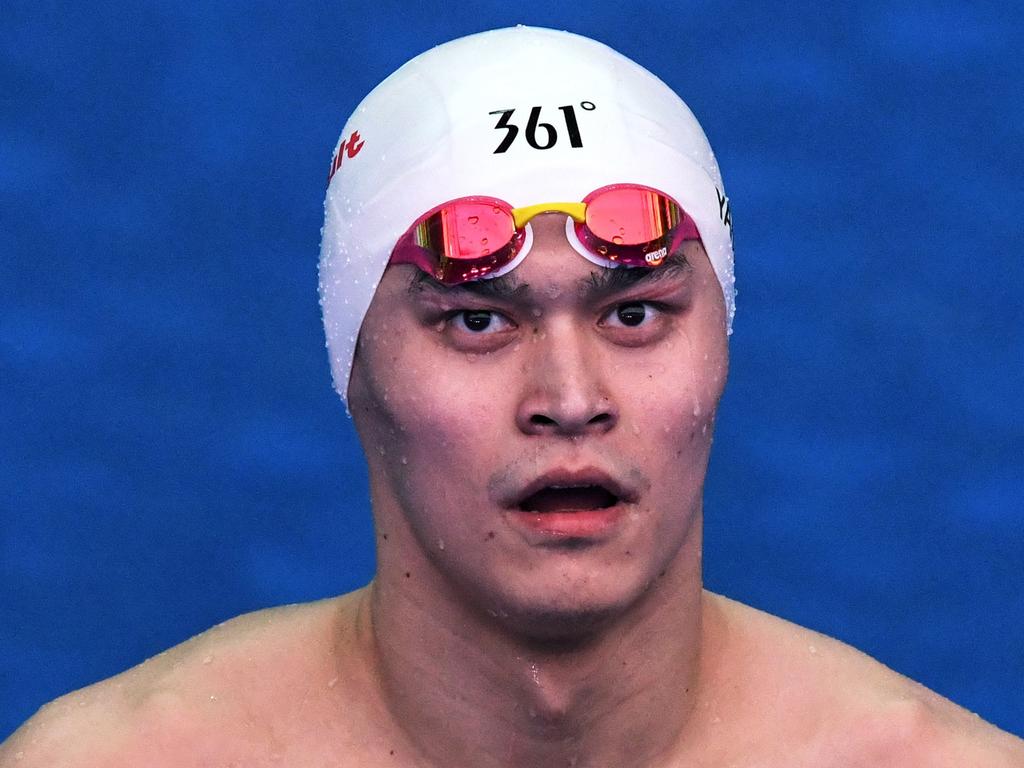Second big name tennis star has secret drugs sanction
Polish tennis star Iga Swiatek pleads for support after ‘fighting the toughest battle of my life’, having served a secret one month ban after testing positive to the same banned drug as Sun Yang and Kamila Valieva.

World no.2 female tennis player Iga Swiatek, has pleaded with her supporters to “stand by me”, having served a secret one month ban after testing positive to the same banned drug as Sun Yang and Kamila Valieva.
Swiatek was sidelined for three weeks between September 12 and October 4 this year, citing “personal reasons” when her drug test result was first analysed but she was then allowed to resume playing pending an appeal.
That appeal has been heard and Swiatek finishes her ban in eight days time, the International Tennis Integrity Agency (ITIA) announced on Thursday. Swiatek will be eligible to contest the Australian Open in January.
The five time major winner was found to have taken trimetazidine (TMZ), but not intentionally, with an investigation accepting her reason that the drug was contained in melatonin medication she was taking for jet lag.
Swiatek’s drugs nightmare is very different to Yang, the Chinese swimmer who was banned for three months for the same drug back in 2014 and the young Russian figure skater Valieva who was stripped of her PyeongChang Olympic team gold medal, when aged just 14, and given a four year ban.

Swiatek, from Poland, was tested on August 12, before the Cincinnati Open in an out of competition test, which revealed the presence of TMZ , a heart medication which helps the body use glucose to provide more oxygen.
Swiatek had been in top shape for much of the year, winning the French Open and collecting the bronze medal at the Paris Olympics.
The Tennis Integrity Agency said the level of fault in the Swiatek case was at the lowest end of the range with “no significant fault or negligence”.
But like the other major tennis drug scandal this year, the steroid drugs test of world number one male player Jannik Sinner - authorities initially kept the test result secret.
Sinner tested positive to clostebol on two occasions close together, blaming a cream used by his physiotherapist to treat his own cut finger.
The World Anti Doping Agency is appealing ITIA’s no fault finding against Sinner, with the case rumbling on before the Court of Arbitration for Sport. The Italian could find himself out of the sport for up to two years if the WADA is successful. Similarly, WADA may in time review the findings made by the ITIA in Swiatek’s case.
The ITIA said in a statement abvout Swiatek:“The player was provisionally suspended from September 22 until October 4, missing three tournaments, which counts towards the sanction, leaving eight days remaining”.

Swiatek missed the Korea Open, China Open and Wuhan Open while she was suspended and mounting an appeal.
Investigators analysed hair samples and also supplements provided by Swiatek, finding that a supplement with melatonin contained traces of TMZ.
ITIA said the contamination was found in a regulated non-prescription medication (melatonin), manufactured and sold in Poland.
Swiatek released a video statement in conjunction with the release from ITIA.
She said: “This experience, the most difficult in my life so far, taught me a lot. The whole thing will definitely stay with me for the rest of my life, it took a lot of strength, returning to training after this situation nearly broke my heart. So there were many tears and lots of sleepless nights.
“The worst part of it was the uncertainty. I didn’t know what was going to happen with my career, how things would end or if I would be allowed to play tennis at all,” she said.
“I had a strong sense of injustice and the first few weeks were really chaotic.

“The tests showed that melatonin I’ve been using for a long time – the batch I had on me and had used before the Cincinnati tournament – was contaminated during manufacturing.
“It was a shock to hear, but it also explained a lot and locating the source is key in these cases which is why after finding out we had to prove that the medication was in fact contaminated. Melatonin is necessary for me because of my travelling, jet lag and work-related stress mean sometimes without it I could not fall asleep. After finding the source we needed time for the whole matter to be concluded, which is happening now.”
The Women’s Tennis Association said in a statement that it fully supports Swiatek.
“Iga has consistently demonstrated a strong commitment to fair play and upholding the principles of clean sport, and this unfortunate incident highlights the challenges athletes face in navigating the use of medications and supplements,’’ the WTA said.
“The WTA remains steadfast in our support for a clean sport and the rigorous processes that protect the integrity of competition. We also emphasise that athletes must take every precaution to verify the safety and compliance of all products they use, as even unintentional exposure to prohibited substances can have significant consequences.”
Swiatek pleaded for her supporters to “stand by me”.
“I have a sense this situation could undermine the image I have been building for years which is why I hope you will understand what happened,” she said. “Understand how I had no control over it and could do nothing to prevent this unfortunate turn of events.
“I hope you will stand by me and keep supporting me because I am not sure if without my supporters I would have been able to find the strength again to carry on and keep and keep fighting. So now I have fought the toughest battle of my life, I hope you will stay with me and keep supporting me.”
The same TMZ drug was involved in 23 Chinese swimmers testing positive in the run-up to the 2021 Olympics, but which was kept secret until earlier this year.
Wada accepted the excuse the result was because of contamination and the athletes were let off without any sanctions, causing an outcry around the world.







